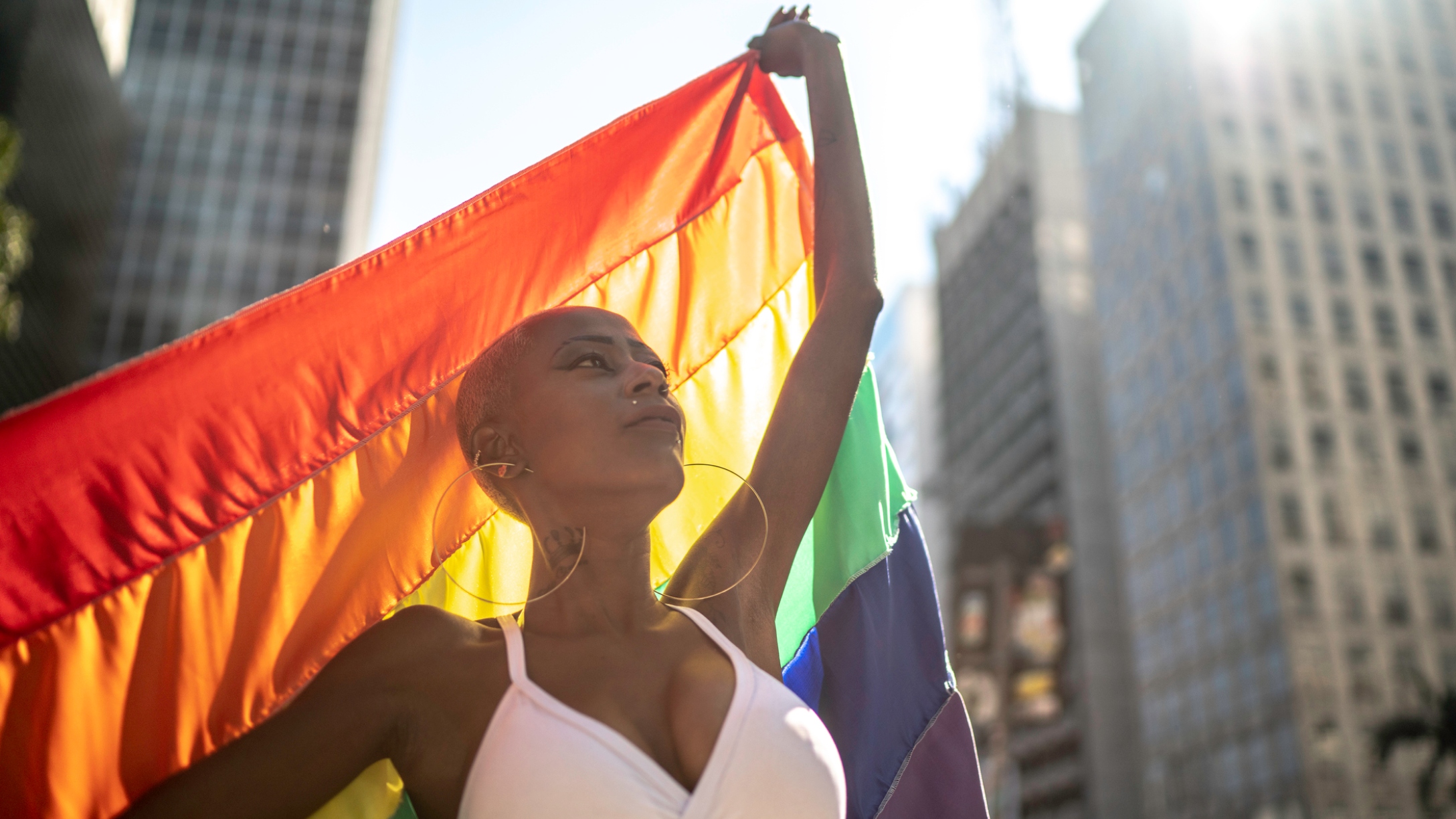
Pride is upon us this month, and it's truly a joyous time indeed. June is a month in which we uplift, celebrate, and amplify LGBTQ+ voices around the United States and throughout the world.
If you're not a member of the LGBTQ+ community but you know and love people who are, it's likely that you want to show your support of those very people. Social media generally only amplifies that desire; it can feel like we're each compelled to speak out either in support of or against every cause, organization, event, and month simply to satisfy our Social Media Overlords.
More from LittleThings: These 10 Pride Month Purchases Actually Benefit LGBTQ+ Organizations
Funnily enough, all the long Facebook posts in the world do little to actually offer support to … anyone. Sure, your Facebook friends who are part of the LGBTQ+ community definitely love seeing it, but it's likely they love knowing you're really out in the world working on change even more. As tempting as it might be to believe it, Facebook activism isn't real activism at all.
What Allyship Looks Like Now
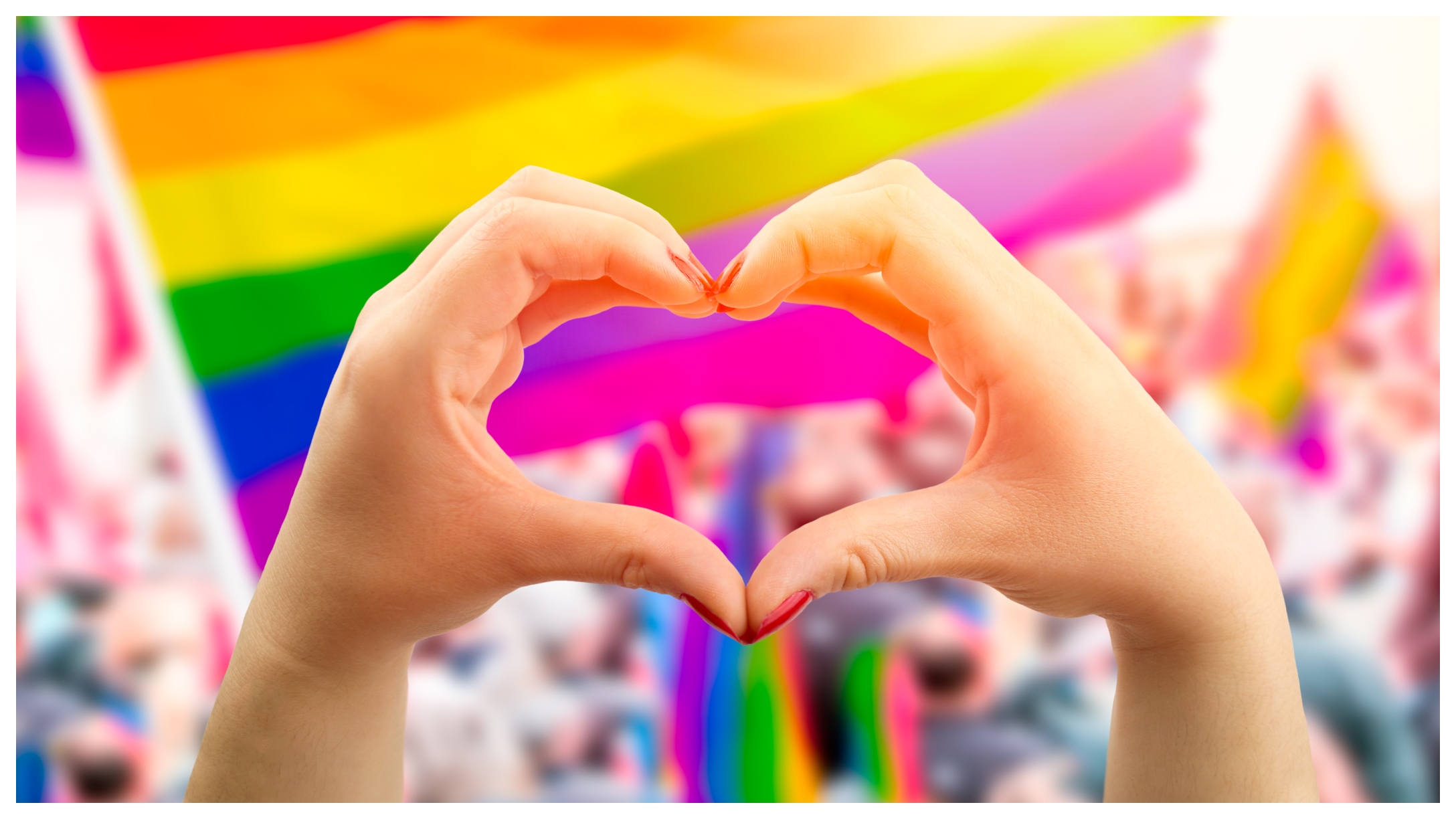
The world has collectively experienced a health crisis, which is still causing disruption, pain, death, and chaos around the globe. That is certainly a good reason to stay off the streets this year as you celebrate Pride Month; while many people in the United States are vaccinated against the virus, the overall rate still hovers in the 50th percentile. It's completely OK to take a step back and say, "You know what? I'm not comfortable marching at Pride this year." That's fine.
What isn't OK is using the health crisis as an excuse to avoid participating in any real activism, change, or support. Sure, calling representatives isn't for everyone. I get that. But it's all too easy to dabble in a bit of virtue signaling by posting a lengthy message that demonstrates the myriad things you do and don't believe about the LGBTQ+ community — and then to not do much else that actually proves what you've said.
Virtue Signaling and Allyship Explained
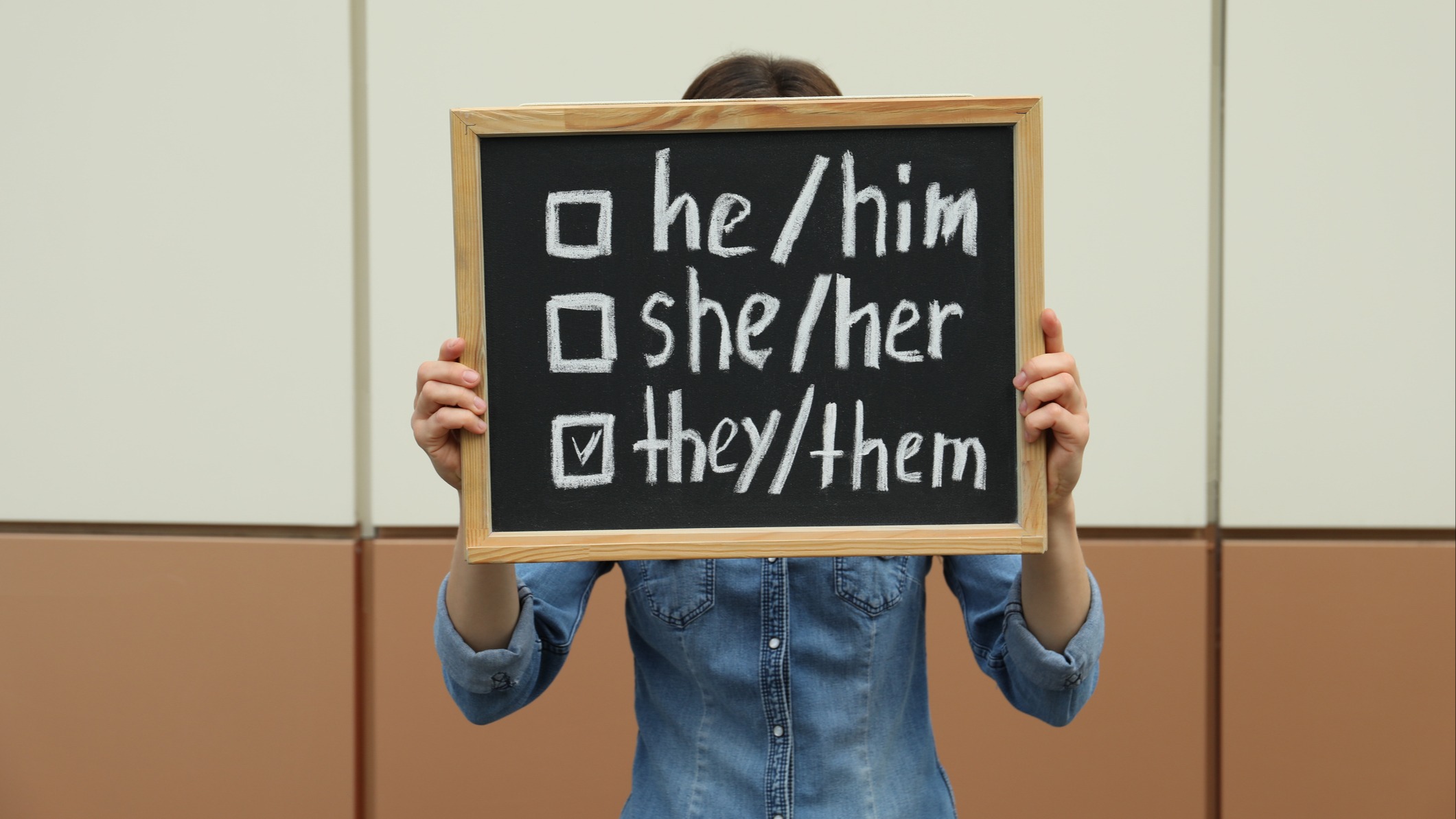
Before we get into ideas, options, and solutions, there are two terms that are important to understand.
Virtue signaling is what you see happening when a friend hops on Instagram or Facebook, writes a giant post about all the work that needs to be done for a disenfranchised group of people, makes it clear that they stand apart from those who are actively harming that group of people — and then that's it. The person never has any evidence that they're doing anything to address the wrongs being perpetrated, but they often reap social rewards from having simply written a post.
Virtual signaling doesn't mean that someone doesn't actually care about what they're writing about, but it often means someone doesn't care enough to really do something about it, even down to changing their own harmful behaviors or addressing those of their family members.

Allyship is when a person chooses to align themselves with a community they are not a member of. So you can be an ally of any group if you really educate yourself about their highs and lows and their glory and anguishes and, crucially, if you're really invested in protecting that group of people, even at your own expense.
For example: Having a "Black Lives Matter" sign in your front yard doesn't make you an ally if you say racist things about Black people, even if those racist things aren't "that racist" or are said after noting, "Not to be racist, but … " in a hushed tone.
Similarly, using a "Love Is Love" banner on your Facebook profile photo is cute, but it means little if you're not willing to actively engage in helping the LGBTQ+ community by making phone calls, writing representatives, attending meetings and organizing groups, and — perhaps most importantly — donating to individuals and organizations. Money makes moves to happen that a few dozen sentences on Facebook never could.
Pride Month Explained
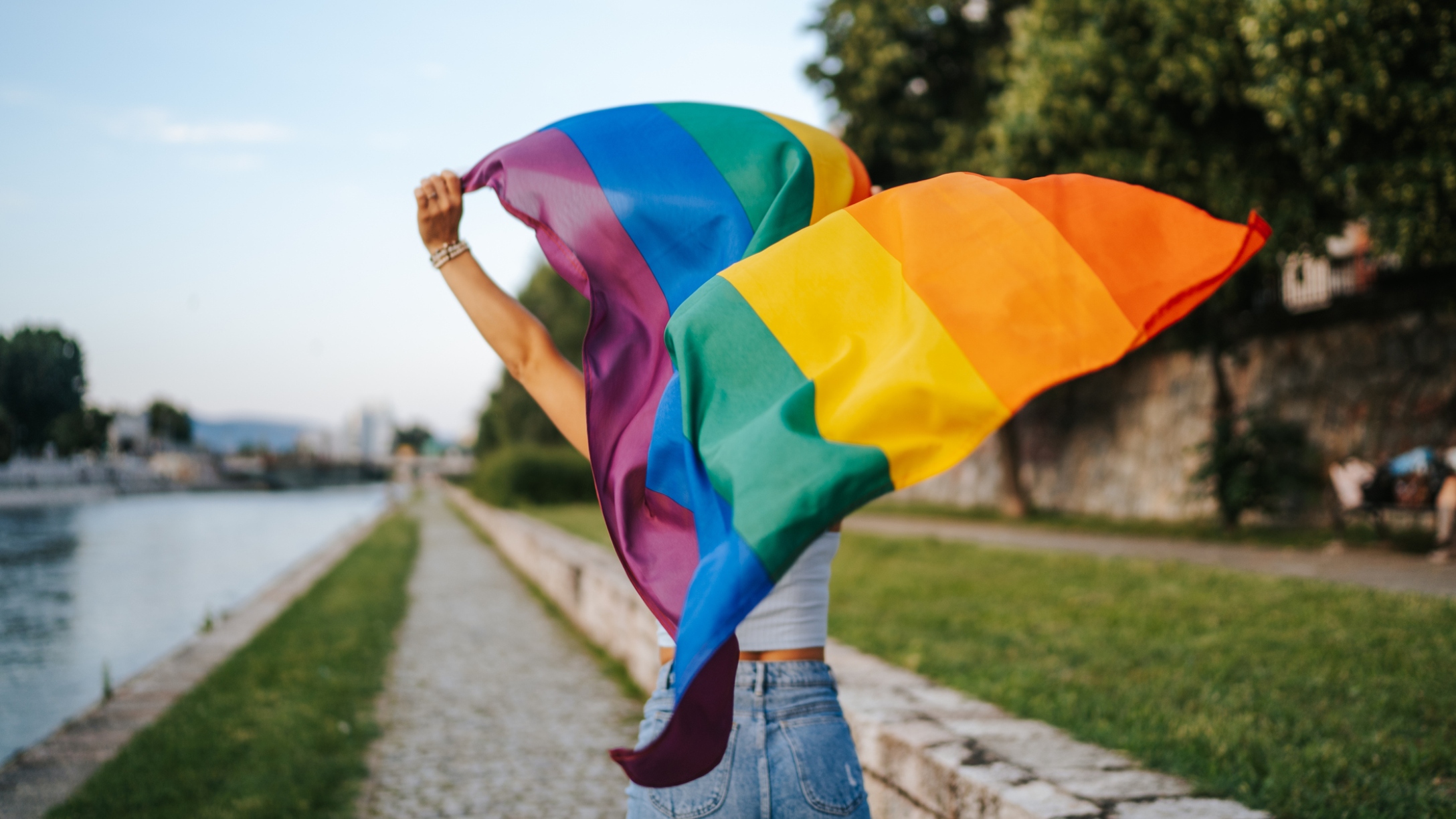
If you call yourself an ally of the LGBTQ+ community, it's important to try to understand what exactly you're aligning yourself to. While all identities, preferences, and orientations are often lumped together under Pride or LGBTQ+, the truth is that there are millions of people under those phrases or acronyms; that means there are millions of realities that you're allying yourself with.
First and foremost, it's a great idea to learn what Pride is and isn't about. Members of the LBGQ+ community are always proud of themselves; it doesn't mean that all of a sudden in June self-love becomes the name of the game. Pride is a movement that has its roots in literal riots. Pride is a revolution.
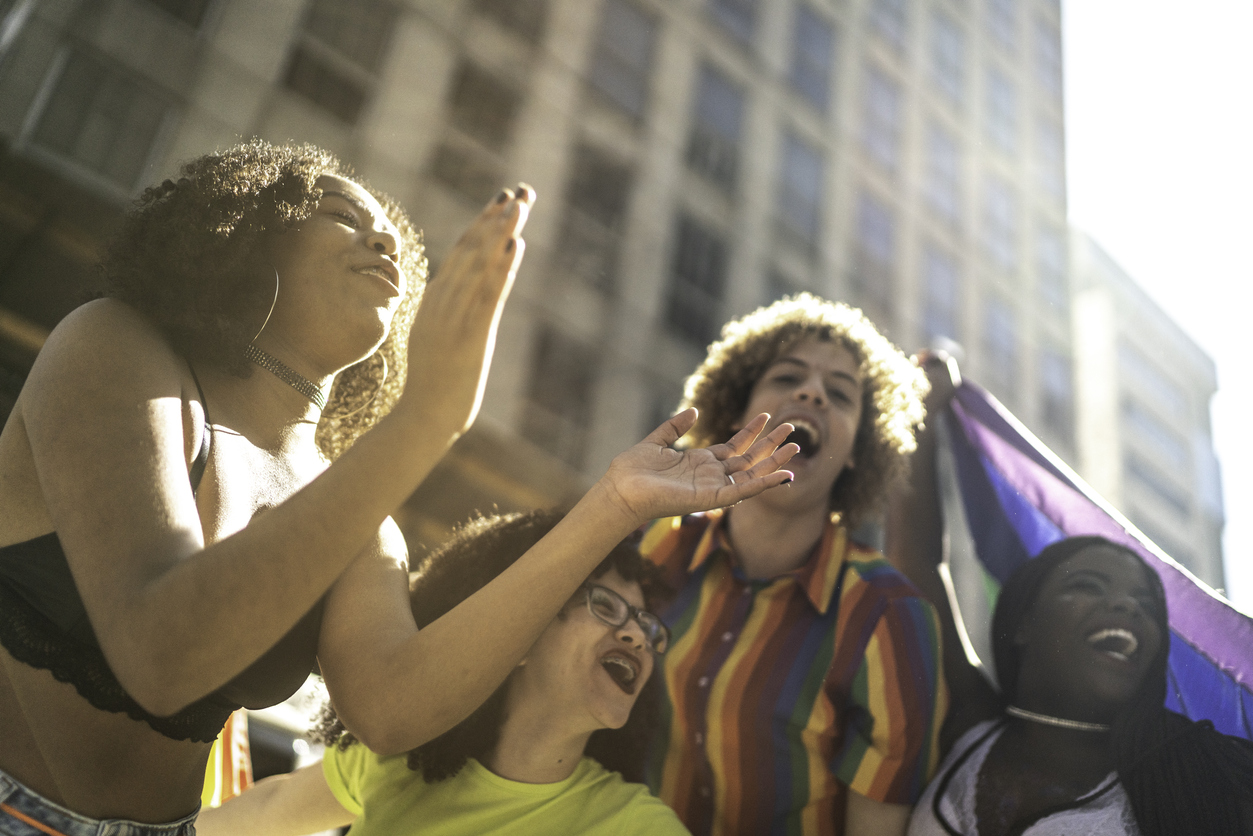
The Stonewall Riots began on June 28, 1969, at the Stonewall Inn in Manhattan. As had happened many times before, police raided the gay and lesbian bar. Four officers went undercover to gather evidence for the Public Morals Squad, an extension of the NYPD. Typically, during the raid female police officers would take anyone they believed to be female, or dressed as a female, into a restroom to verify their biological sex and then make arrests as the squad deemed appropriate.
However, something was in the air that night, and patrons fought back. Instead of going along with the police, people refused. As officers tried to navigate the situation, cries of assault went out; eventually, the crowd grew to 10 times its original size. The police tried to restrain some of the people who were there, and violence broke out as a result.
The riots continued, and the Gay Liberation Front was established in the months that followed. Activists also started a newspaper called Gay, which was quickly followed by two more publications: Come Out! and Gay Power. Something was changing, and many people were on board.
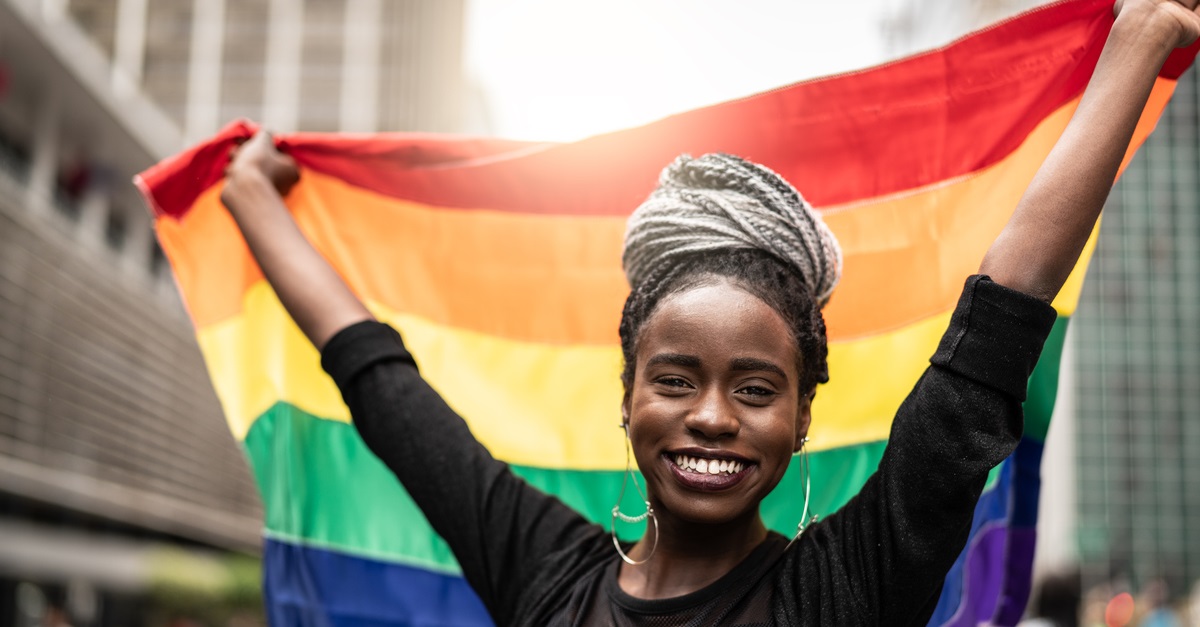
The first Gay Pride parade was celebrated on the one-year anniversary of the Stonewall Riots. Since then, the movement has only grown. But the ongoing existence of Pride celebrations, months, and parades doesn't mean that the LGBTQ+ community doesn't need allyship. There are a multitude of issues and concerns that are directly threatening the health, safety, and security of LGBTQ+ people all over the United States. Here are a few:
- The Texas Senate recently moved to ban transition-based care for children under the age of 18. This is especially scary for trans youth in Texas and the people who love them; many members of the transgender community report knowing they are trans from as early as 3 years old.
- There are a never-before-seen number of attacks on LGBTQ+ rights around the entire country this year.
- Arkansas, Mississippi, and Tennessee all introduced anti-trans sports bans, and other states have threatened to do so as well.
- Arkansas and Tennessee are also trying to pass bills that would prohibit even speaking about gender identity or LGBTQ+ people in classrooms.
How To Be a True Ally to the LGBTQ+ Community
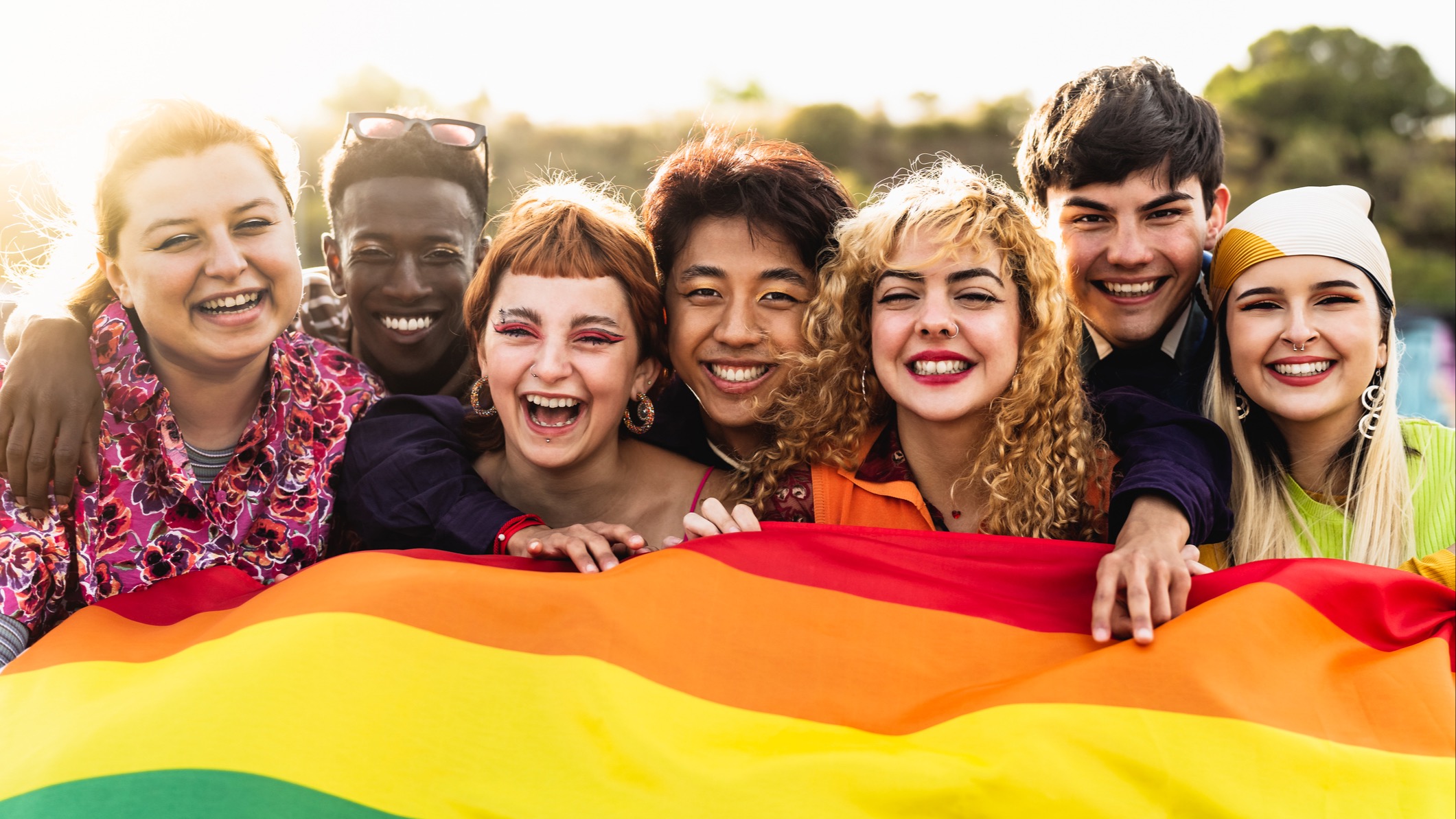
To be honest, these issues and concerns are just the tip of the iceberg; part of being an ally to a community you support but aren't a part of is learning as much as you can about the issues and threats they contend with and face.
First and foremost: Avoid centering yourself. Unless you are part of the LGBTQ+ community, don't make what you do and say in support of them about you. The group currently includes numerous sexual orientations, preferences, and gender identities, and the group is always evolving. When you're tempted to offer your own thoughts and feelings about what it is to be a member of a community you actually aren't part of, take a step back and find voices you can uplift instead.
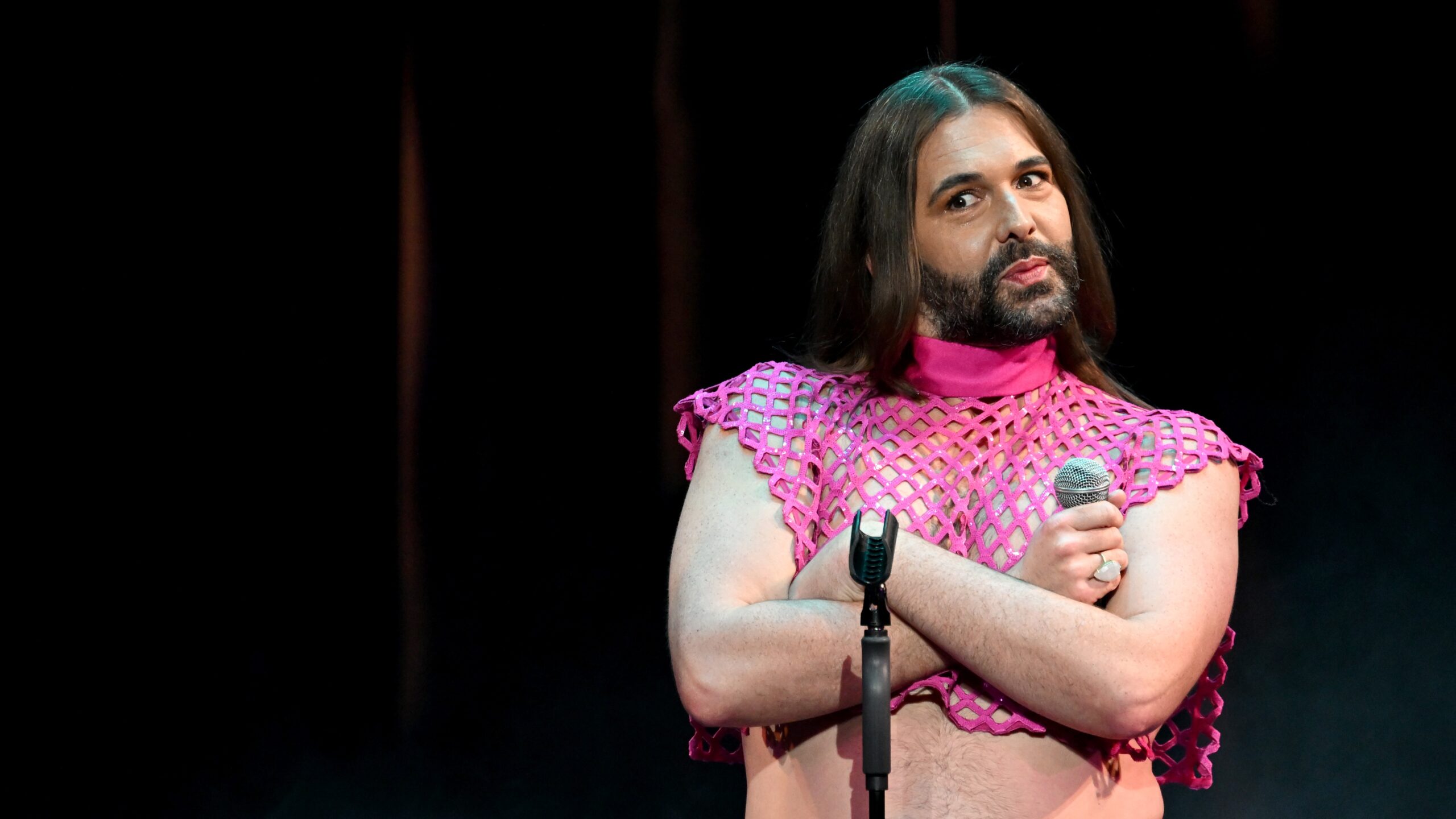
One of the best things about social media is that despite all the virtue signaling going on, there are real people doing real work. It is easy to follow a few Instagram accounts and reap the knowledge that has cost others their literal blood, sweat, and tears. To avoid that, make sure you are fairly compensating people and activists for their time and work. People nearly always include links to payment apps or Patreon, where you can support their work financially.
Here are a few names to look up:
Share Your Own Allyship Journey With People You're Speaking To
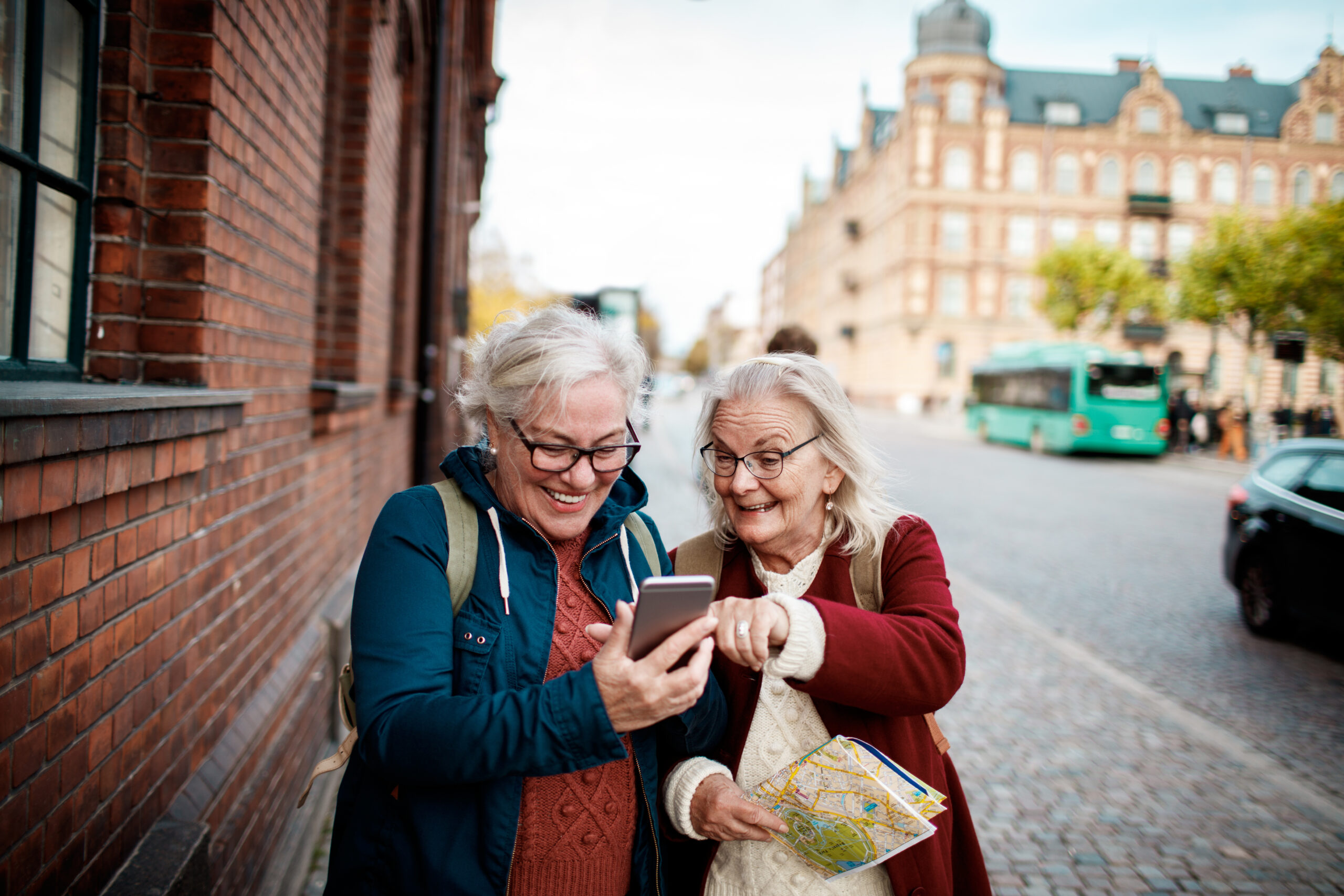
Let's be real: It is unlikely that you have spent most of your life learning about how to be an ally if you're the member of a dominant group. For many of us, myself included, that kind of work and education has taken place over the last 10 or so years.
For example, I, a white person, was raised by two people who made countless racist and specifically anti-Black comments throughout my life. While those comments didn't hit with me, it wasn't until I was around 18 years old that I realized I needed to do work to undo what had been embedded inside. Similarly, I didn't think one way or another about disability activism until my son was born with a disability; I didn't understand LGBTQ+ allyship until I had gay, lesbian, and trans friends in college.
It's OK to not have been woke and perfect your entire life — everyone has to start somewhere, and you're never too old to learn new things. One of the most powerful things you can do as an ally is to be honest and open about your own ally journey with others who aren't as far down the road as you are. When you make a statement or share a meme, add a sentence or two about why that specific statement or meme means something to you. If you invite a friend to a rally or protest, but they've never done anything like that before, make sure they know you were once in their shoes, too.
Similarly, reach out to other people who you think are further down their own allyship journey than you are and ask for guidance on what you can learn next. I know personally that there is no end to this growth and education; the work is never finished, and so much of it is personal.
Be Willing To Take on Negative Attention or Even Physical Harm for Others
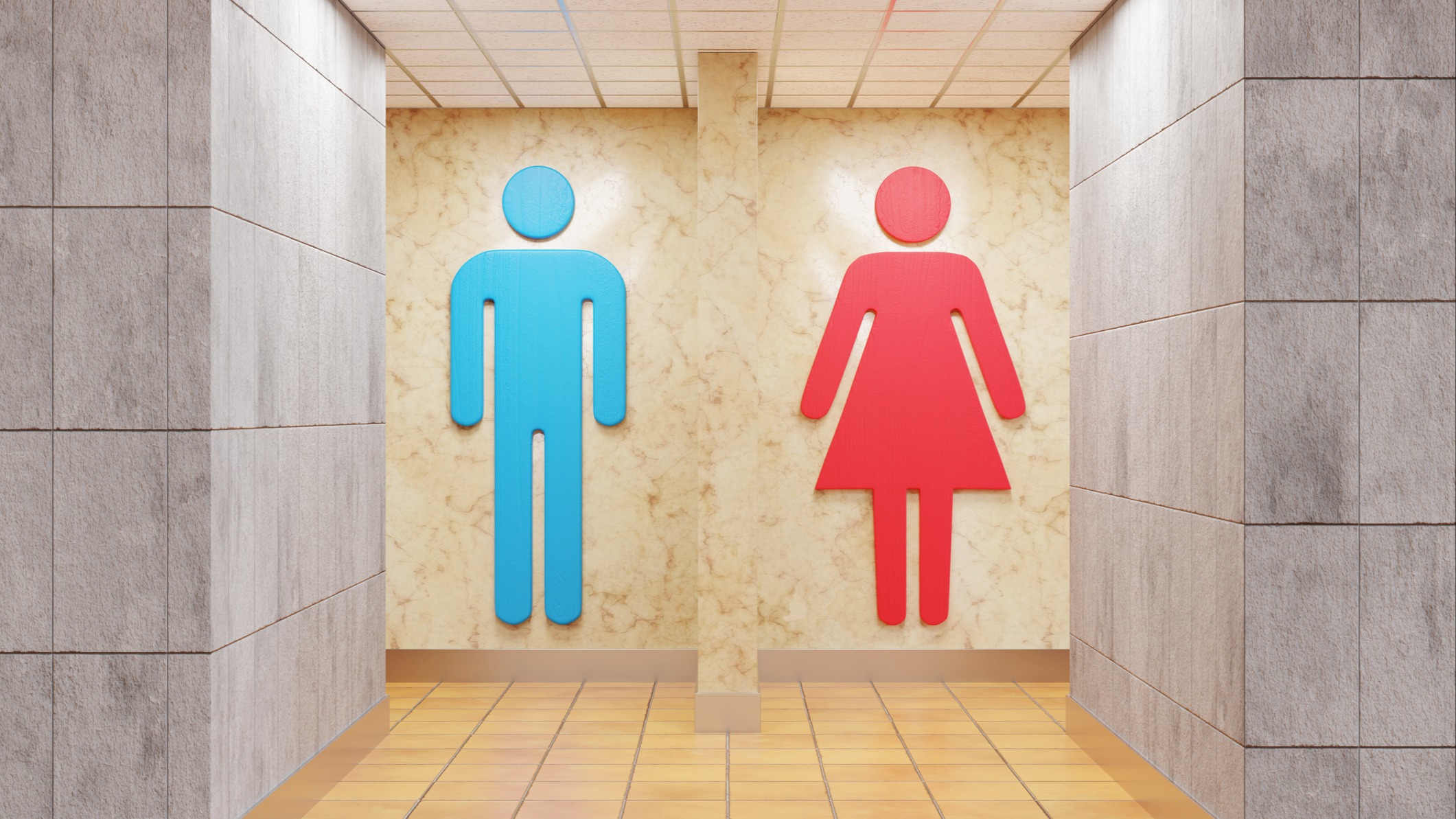
A crucial role the ally plays is being willing to actually, literally protect the community that they are aligning themselves with. That can mean a lot of things, in a lot of different ways. If you see someone from the LGBTQ+ community being harassed in person or online, step in and actually say something to stop it. That can be scary, and no one wants to get hurt, but it's important to realize that a big part of allyship is being willing to actually use the power you have as a member of a dominant group to protect others.
Embed and Celebrate LGBTQ+ Voices in Your Life, Online and Offline
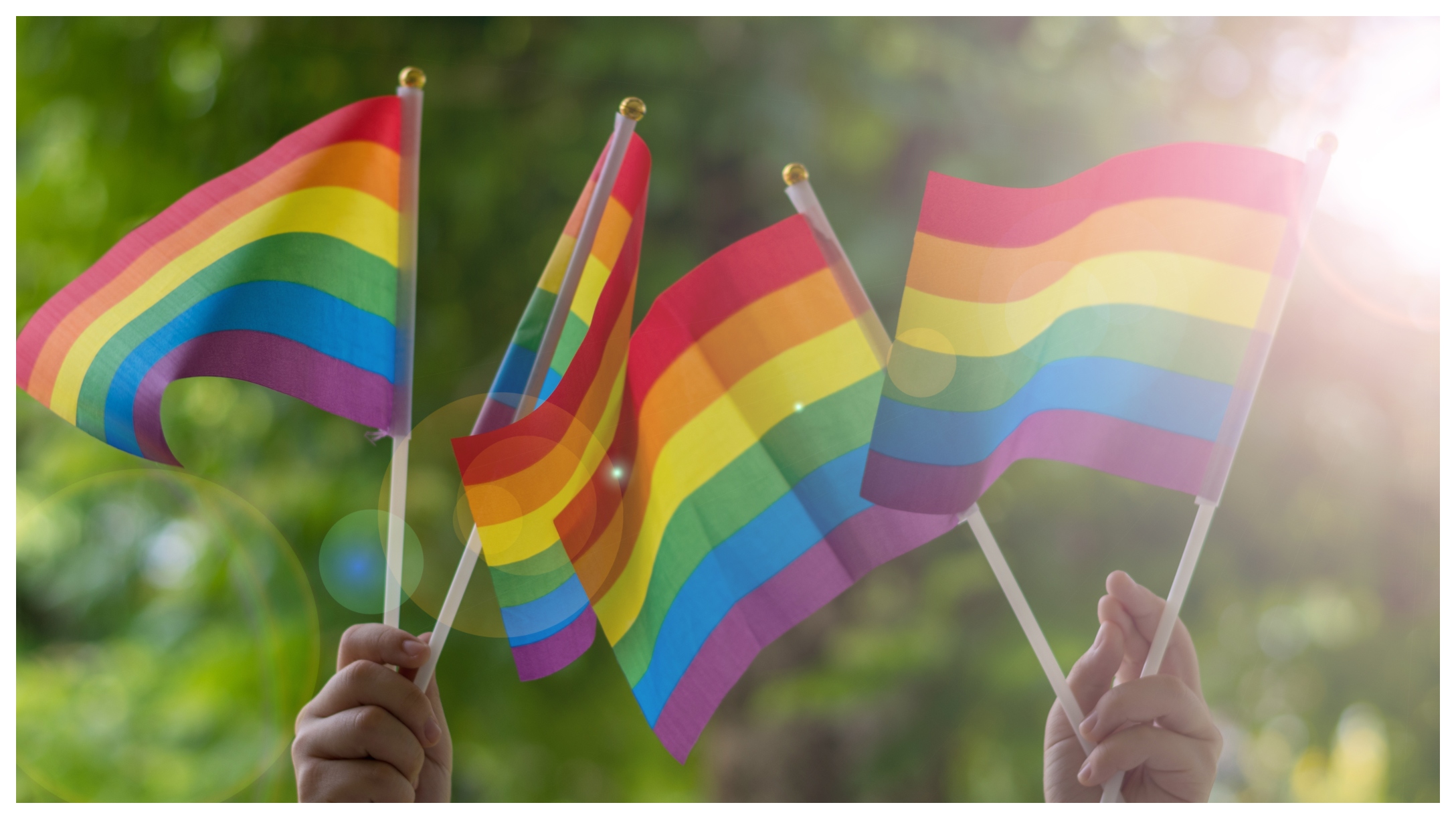
Another important part of an ally is truly incorporating LGBTQ+ voices and people in your home, work, and life in general. Fill your home with books, TV shows, movies, and more that are produced by LGBTQ+ people. Teach your children that LGBTQ+ people can do anything, that the sky is limitless; read your children books that feature people who hail from a diverse set of gender identities.
Normalize being LTBQ+ in your home, even if none of you identify that way — don't pretend to be something that you are not, but allow conversations about LGBTQ+ concerns, happiness, issues, and joy to flourish throughout the hallways and rooms you live in. Resist the impulse to "other" a whole group of people, and instead emphasize the humanity we all share.
At Wild Sky Media, we recognize that not all pregnancies and parenting journeys look the same. That’s why across all our sites — CafeMom, LittleThings, Mom.com, and MamásLatinas — we are committed to using inclusive language as much as possible, recognizing that all forms of parenting are valid and celebrating the shared experiences and unique differences among moms, dads, nonbinary and noncisgender parents, and all forms of caregivers.







